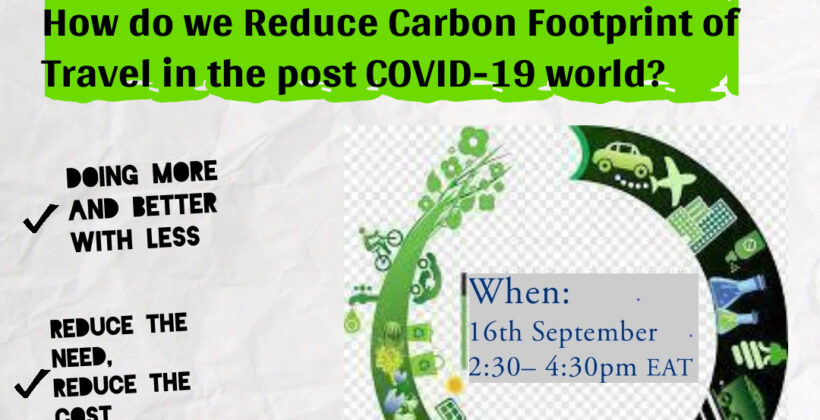
This is the second part of the ‘doing more and better with less’ event series on Rapid Transition co-organized by The Africa research and impact Network (ARIN) , The Rapid transition alliance (RTA) and The African Centre for Technology Studies (ACTS) . This webinar will explore the balance of ‘necessity’ in travel by addressing two questions:
- Is reducing travel unnecessary travel socio-economically sustainable for the sector?
- Does deliberate reduction on travel have actionable positive impacts on climate action?
More information on the event
In the recent years, long distance travel has become more accessible, and cheaper across the globe. However, the reliance of many travel modalities on fossil fuel, still puts long distance travel among the highest contributors of green house gas emission. It has been estimated that three among the top ten avenue to reduce CO2 emissions involves travel, including cancelling trans-Atlantic flights, reducing motor vehicle use, or using alternative ‘cleaner’ travel modalities (e.g., hybrid cars). Other greenhouse gases, such as nitrogen oxides (NOx), water vapor, particulates, contrails and cirrus changes have additional warming effects, and are part of missions.
With the onset of COVID-19, there has been substantial reduction in emissions, and for the first time in many years, there has been sightings of Mts. Kilimanjaro and Kenya, from as far as Nairobi in East Africa. The Rapid Transition Alliance (RTA) reported that:
… in Delhi, where air is normally choking, levels of both PM2.5 (small particulates) and the harmful gas nitrogen dioxide fell more than 70 percent… In China, the drops in pollution resulting from coronavirus shutdowns likely saved between 53,000 and 77,000 lives—many times more than the direct toll of the virus—according to calculations done by Marshall Burke, an Earth system scientist at Stanford University. Air pollution accounts for more than 1.2 million annual deaths in China.
This leaves the question whether deliberate reduction on travel – as has been seen in the COVID-19 times, has actionable positive impacts on climate action.
On the other hand, the reduction on travel, has affected incomes and livelihoods for families that rely on the travel sector. The limitation of travel, show that various airlines, mass transport systems and public transport systems, saw reduction in capacity, thus fewer employers were able to maintain their employees. This introduces the question of whether reducing travel – necessary/unnecessary travel – is socio-economically sustainable for the sector.
To Register CLICK HERE, you will then receive a link and instructions by email.